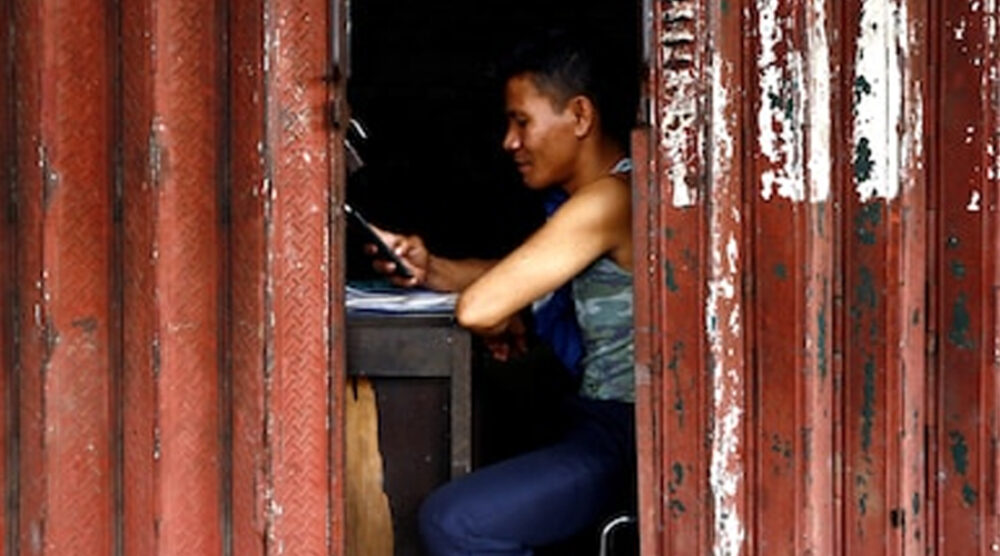The digitalisation of almost every aspect of civic life has brought forth a new constitutional moment. The hyper-connectivity of peoples in the digital space has put a new spotlight on the importance of constitutional rights such as free speech and press freedom. Indeed, the central role of social media in contemporary society, particularly its ability to foster community political engagement, has heightened appreciation for democracy itself.
For Filipinos the use of social media in the context of democratic consolidation is exceptionally remarkable because for the past four years the Philippines has topped social media users worldwide. They rank first globally in internet usage with an average daily screen time of 10 hours. And almost half of the adult population use the internet.
But more importantly, a third of the 61 million-strong Philippine electorates are from the 18-35 age bracket, where perhaps the majority of social media users actually belong. It is therefore imperative that Filipinos now undergo a critical examination of the interplay of social media and democracy because in two years they will be participating in a volatile and divisive political battle, the 2022 presidential election.
Pertinently, CNN Philippines, through its Digital Disinformation Tracker research project, deployed a team of academics to monitor online conversations relating to the midterm elections in 2019. And one of their findings was that practically all candidates used various social media platforms such as Facebook, Twitter and Instagram to promote themselves and their political agendas. This will likely happen again in 2022.
Ostensibly, social media enabled otherwise under-resourced citizens to run for public office. For instance, a majority of the 62 candidates in the 2019 senatorial race did not have nationwide popularity nor the proper election machinery to implement a conventional political campaign. Many of these relatively unknown candidates professed that social media platforms have afforded them the chance to raise their profile with minimal cost.
Social media popularity not a guarantee
This apparent democratizing effect of social media then raises the question of whether a strong presence in social media equates to electoral success?
First-time candidate Willie Ong is a good case study. At the time of the election, he had around 10 million followers on Facebook. As per the final and official tally of election returns, “Doc Willie”, as he was known by his social media followers, garnered only about 7.6 million votes. This was not enough to get one of the 12 seats up for grabs. The candidate who got the 12th seat tallied 14.5 million votes while the one who took the top spot received 25.2 million votes.
One possible reason why some popular online personalities did not perform well in the election was that Filipino voters pretty much stuck to their echo chambers in cyberspace. There was no effort from the various political sides to “reach across the aisle” so to speak. Each side was only keen to promote their respective narratives while equally determined to suppress the claims of the others.
Toxic environment in social media
The problem with an “isolationist mindset” is how easily it can evolve into an “us versus them” mentality. Factor in the anonymity the internet affords, it is not surprising that interaction in social media can become really vitriolic quickly. In fact, another finding of the CNN Philippines research project was how “toxic” online discourse amongst the various political groups in social media was during the entire election period.
Negative campaigning is part and parcel of any electoral exercise. Pointing out the faults and flaws of opposing candidates is not unusual and in fact, helps voters in evaluating whom to vote for. According to veteran journalist and news anchor, Christian Esguerra, who covered the midterm election closely, “social media seemed to be a top weapon of choice for campaign disinformation, complementing old-school negative propaganda on the ground”. Begging the question of whether more stringent measures regulating online political advocacies should be adopted? A move that ironically could be viewed as undemocratic being a curtailment of free speech.
Indeed, social media in the democratic context poses a huge dilemma for many democracies around the world. Negative campaigning, fake news, and other modes of disinformation on the web are preventing people from having an honest-to-goodness deliberation of urgent issues that impact everyone. This absence of open public discussion then enables purveyors of these types of unscrupulous tactics to put more garbage on the internet. Poisoning the well even further to the severe detriment of frequent social media users like Filipinos.
Social media community response
Clearly, social media significantly impacts the trajectory of Philippine democracy. When utilised the right way, the “connectivity” it fosters can enhance political engagement within the polity, which then can elevate the level of political consciousness of citizens. But given the fluidity and dynamism of digital technology, finding the “right way” is inevitably a process of reinvention. For starters, internet-savvy Filipinos must accept that more open dialogue and genuine deliberation about political issues are beneficial to the democratic growth of the country.
The government, on the other hand, must fully recognise that technology itself plays a huge role in protecting and upholding the constitutional rights of Filipinos in the digital world. Therefore, it is incumbent upon the government to keep pace with technological developments and recalibrate cyberspace-related policies accordingly.
The truth of the matter though is understanding that the effects of digitalisation on democratic values, such as freedom of speech and rule of law are still ongoing. But threats to democratic institutions brought forth by digital technologies continue to evolve. Hence, civil society, the business sector (including tech companies that own social media platforms), and governments must persist with good faith discourse on this very issue to make sure that social media enhances democracy, not undermines it.
Michael Henry Yusingco, LL.M is a senior research fellow at the Ateneo Policy Center of the Ateneo School of Government in Metro Manila and a fellow of the Institute of Autonomy and Governance in the Bangsamoro Autonomous Region in Muslim Mindanao. Twitter handle: @mhyusingco








